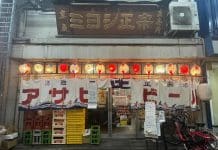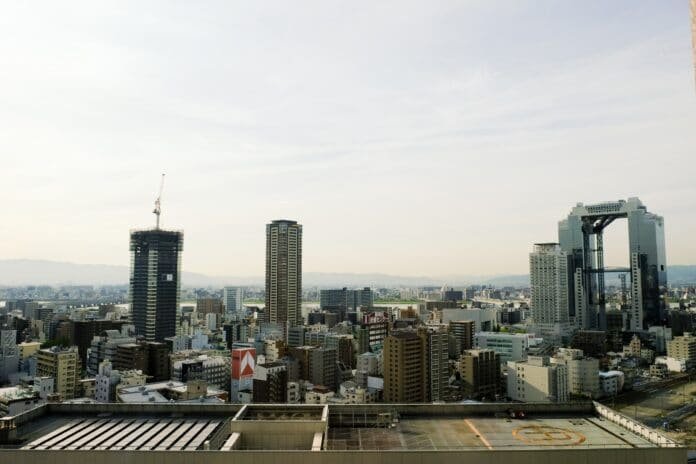
Writing about Osaka, I’ve noticed that some readers hold a great many misconceptions about the culture here. One aspect that is perhaps more misunderstood than most is that of the work culture in Japan. Japanese company employee
We are all aware of the well-worn stereotype of the salaryman who works behind his desk from dawn to dusk. He is then dragged out to a “drinking party” with the boss. He finally gets home in time to have maybe a few hours of sleep. Next morning, he begins the whole process again.
Such unfortunate souls do indeed exist. However, they aren’t quite as prevalent as we may have been led to believe. Like any other country, Japan’s working culture evolves over time. Admittedly, perhaps things move at a more sedate pace here than elsewhere.
So, what is it like to work for a Japanese company as a foreigner in Osaka today?
I spoke to a range of employees from different nations, and working across a diverse range of sectors. Some patterns emerged and they may surprise you.
So, join me today, dear readers, as we take a step into the working world of the Japanese company foreign employee.
Working Hours
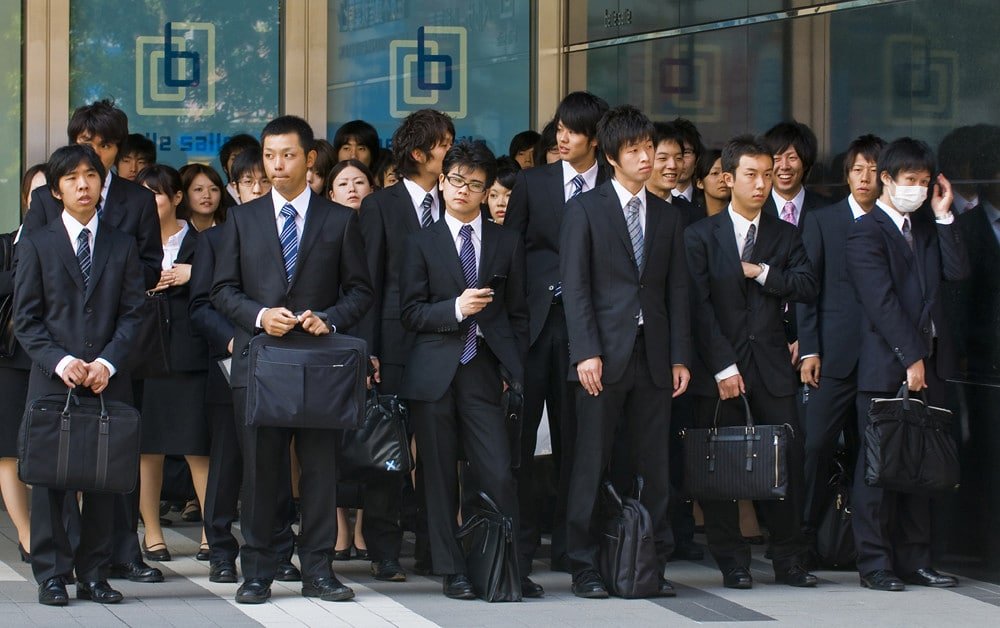
As I mentioned in my earlier pre-amble, Japan’s corporate culture is notorious the world over for its absolutely brutal working hours. Last year, the Japanese government passed legislation limiting monthly overtime to only 80 hours per month!
To what extent are foreigners expected to play along with this?
In speaking with a range of different residents for this for this article, I noticed a clear discrepancy between how “westerners” (those from Europe, the US, and other English speaking territories) are treated in comparison to those from other parts of Asia (China, Korea, Malaysia, etc.)
Japanese firms understand that westerners will not be accustomed to such long hours, and will also be more aware of their rights as employees. As such, they tend to be given an “easier ride” as it were. They will, in general, work a little longer than they would in a typical office job in their home country, but nothing like the level of their Japanese colleagues. A typical Japanese works 10-11 hours per day, whereas a westerner would typically work no more than 9 hours.
This wasn’t the case for those from other parts of Asia that I spoke to though. In most, though not all cases, they are expected to work the same punishingly long hours as their Japanese colleagues. In some cases, for less pay and less benefits.
A Case Study
I spoke to one such employee, a Taiwanese national, working as a sales representative in Osaka. She confirmed that working hours in her company were long. However, she said that her sector, advertising, was equally notorious for long hours and limited breaks in her native Taiwan too, so she “already got used to working long hours every day”.
She mentioned however, that the Americans who also work for her firm didn’t work as late into the evening each day as she does.
“They are on a different contract from me” she added.
I guess one could perhaps look on this as a form of what some would call “white privilege”. Certainly, workers from majority Caucasian nations seem to get an easier ride in this regard.
Contracts
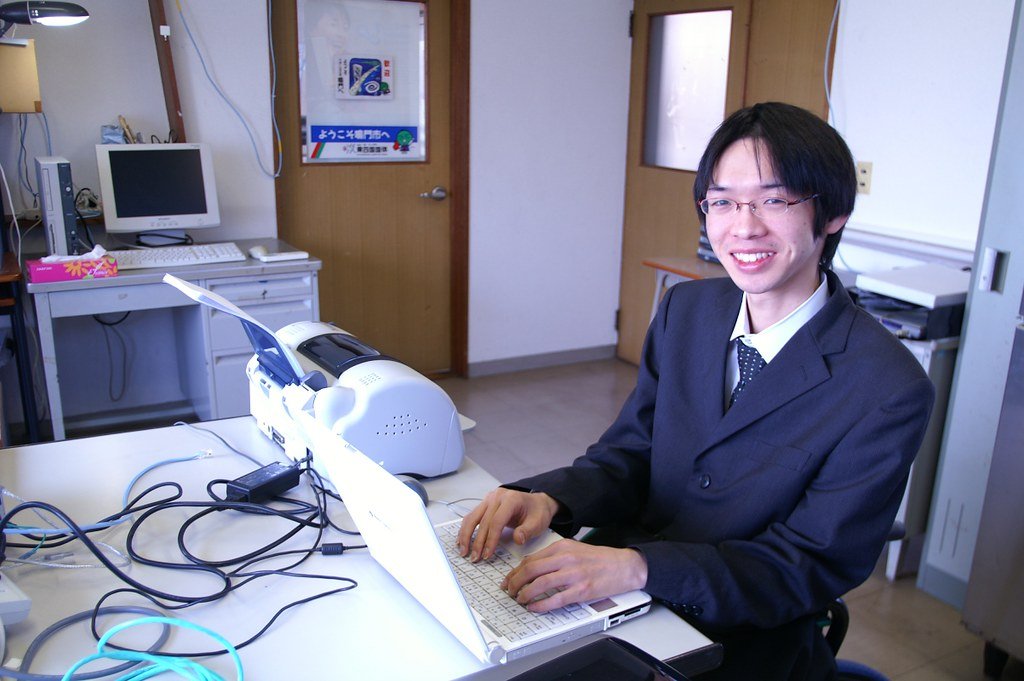
It’s not all plain sailing for Europeans and Americans in Osaka though. For many, those shorter work hours come at a price. It is true that the working expectations are lower but in the majority of cases, this also correlates to an inferior contract.
Many foreigners in Japan, regardless of nationality, find themselves restricted to a one year contract. In some cases, there is also a fixed limit as to how many times this contract can be renewed. As an example, I spoke to a university lecturer from Canada. He explained that although he worked less hours than his Japanese colleagues, his contract was only for one year. Additionally, the contract came with a fixed limit of 5 years. His colleagues also received a bonus, equivalent to one month’s salary, twice a year. He received no such bonus.
Many companies create a special employee designation (a unique type of worker) just for their foreign employees. You may be thinking “oh that’s nice, they created a contract just for me, and I’m special”.
Sadly, the reasons behind such contracts are usually a bit more cynical than that. This “special designation” means you are excluded from the benefits afforded to full-time, permanent employees. These can include pension, healthcare coverage and, in many cases, bonuses or annual salary increases.
However, as mentioned before, it also shields you against the more toxic elements of Japan’s work culture, such as unpaid overtime and having to fawn all over the boss to try and earn a promotion.
How About Some Time Off?
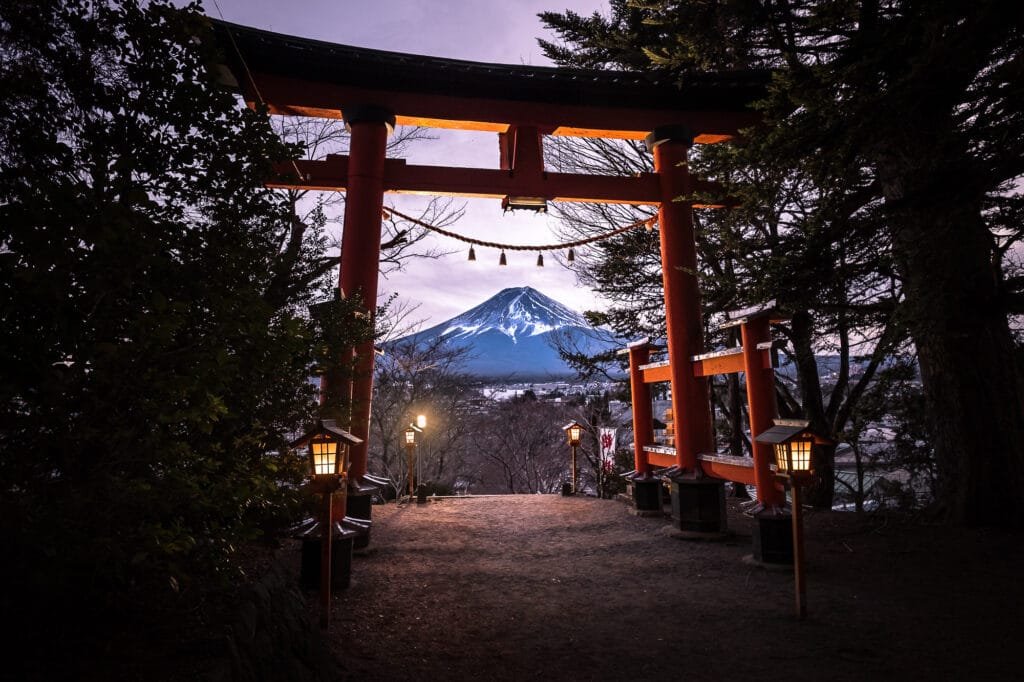
One area where foreigners are treated exactly the same as Japanese company employees in Osaka is in the area of leave entitlements. Allocated annual leave in Japan varies from 10 to 20 days per year for a full-time worker on a one year contract.
In principle, companies start new workers on 10 days of annual leave per year, increasing by one day per year for each subsequent contract renewal. This eventually maxes out at 20 days leave per year.
However, companies can, at their discretion, offer more leave than the maximum 20 days but they must offer new starts the bare minimum of 10 days in their first year. Like many elements of employment contracts in Japan, the “perks of the job” increase as the salary and responsibility level goes up too.
I spoke to a first year laborer at a processing factory in Osaka, a Vietnamese national. They told me that the only received the minimum 10 days annual leave, however they were grateful for this as they added: “it’s more than I would get back home”.
Compare this to another individual I spoke with, a German national, who works at a tech company in Umeda. He said: “I got 25 days annual leave in my first year, with 2 days added for each time I renew my contract.” The policies for my Vietnamese and German friends here are the same as those for Japanese first year employees at their respective firms.
What if You’re Feeling Unwell?
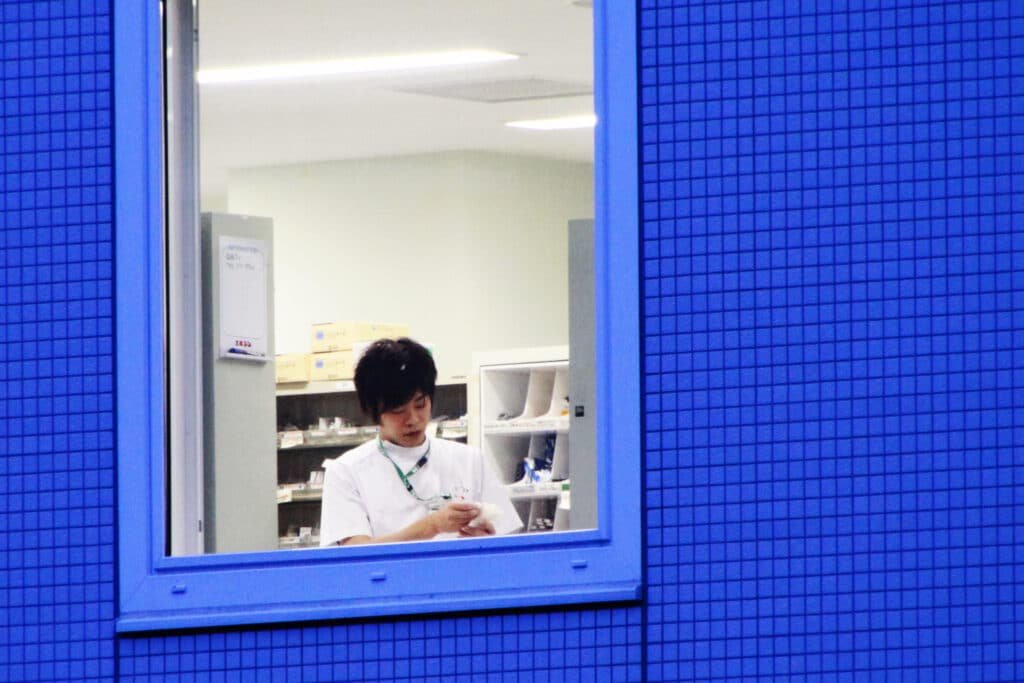
Sick leave is entirely discretionary in Japan, and not legally mandated. Across those I spoke to the allocation varied from 0 to 18 days. If you don’t have sick leave at your company then you will be expected to use part of your annual leave entitlement if you require medical attention. However,
Social Aspects
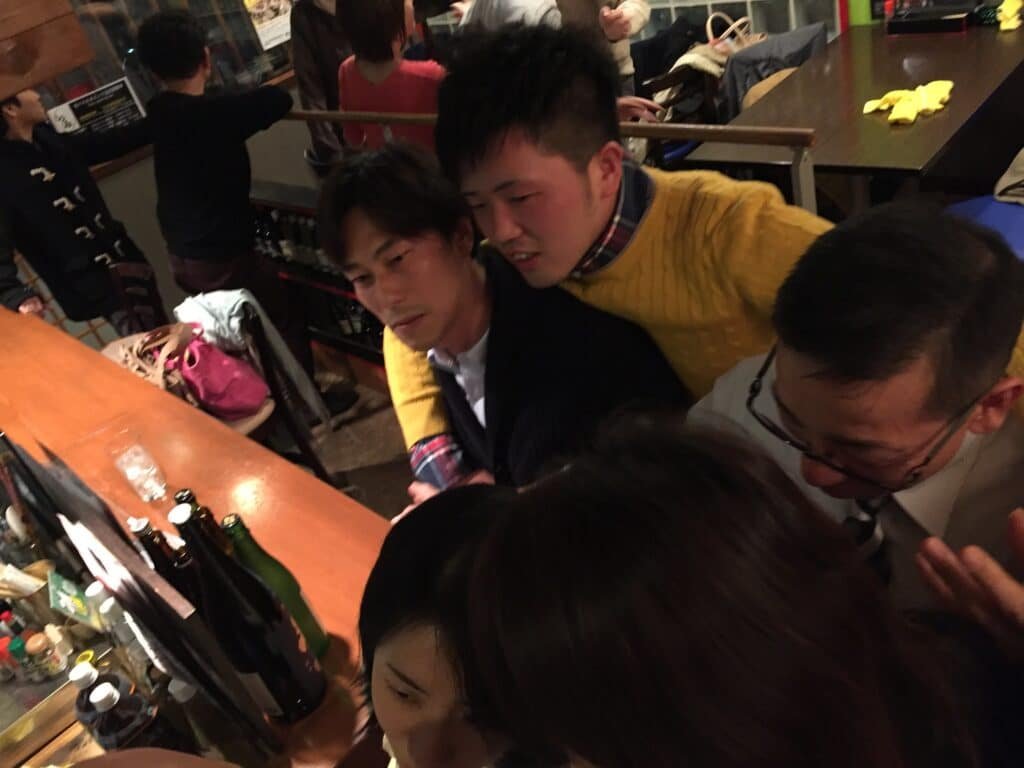
With the legal stuff out of the way, what does it actually feel like to work at a Japanese company on a day to day basis?
Again, across those I spoke to, some consistent patterns emerged.
In Japan, the team dynamic is a huge part, not just of work culture, but of society in general. From the moment kids enter pre-school, they are taught that they are part of a larger collective. Working together to ensure that collective prospers is everyone’s responsibility. From a socio-political standpoint, it’s quite ironic that a country as apparently conservative as Japan has, in actuality, a rather socialist approach to the idea of societal prosperity.
This idea of your role as part of the collective plays out in the workplace on a daily basis too. You can often hear groups of workers doing their daily early morning exercise routine, set to music, before the start of each working day. Likewise, meetings are a frequent occurrence in Japanese companies, as all members of a particular project team are invited to give their suggestions and opinions. If you do decide to work for a Japanese firm, you can expect to attend a whole lot of meetings, sometimes several in a single day.
This also plays out outside of work too, with nights out, weekend team-building trips and other seasonal social gatherings. It’s no coincidence that a number of my Japanese friends met their future husbands and wives through working together.
Management System

Although the work environment in Japanese companies is collaborative, the management style is still hierarchical. As such, there’s a number of people you’ll need to get to know and job titles you’ll need to memorize. Let’s look at these in closer detail:
First there is your Shunin (主任). This person is your direct supervisor and the one you will report to on a daily basis.
Next up from your Shunin is the Kakaricho (係長). The Kakaricho is the team leader or project manager.
Above the Kakaricho is the Kacho (課長). Kacho is probably best described as a head of department or a section leader.
Your Kacho answers to the Jicho (次長). Jicho is essentially an assistant manager, and the second in command of your office.
Top of the tree in your office is, most likely, the Bucho (部長) .
The Bucho is the office manager, and will answer directly to the company’s senior executives. You may see these executives from time to time, but in 95% of cases, the most senior person you will see on a daily basis is your Bucho. However, you are unlikely to have many direct dealings with him. Most day to day work issues will be discussed with your superiors further down the chain of command.
Mentoring
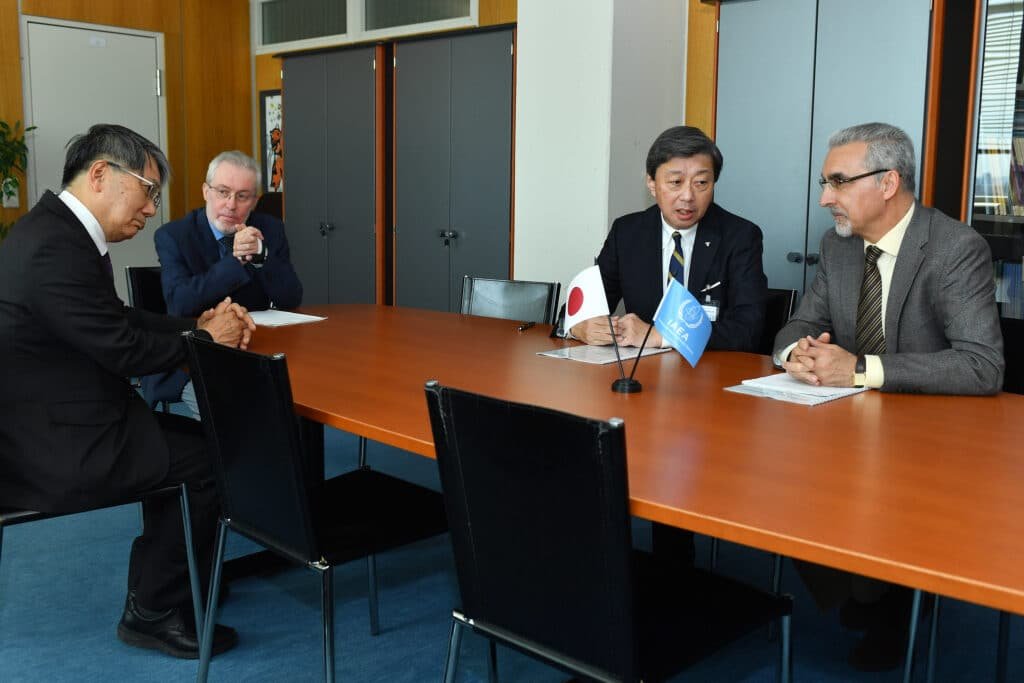
Beyond the structured system of hierarchical management, as set out above, there is also the informal relationship between subordinates and superiors that goes on in the typical Japanese company. We call this the Sempai Kohai system.
A Sempai (先輩) is someone either older than you or ranked above you in the company. This is the person you will look to for advice and guidance and as a point of first contact for any problems you may have. Whilst you should still treat them with deference and respect, the relationship you have with your Sempai is far less formal than that with your direct superiors in the company.
To your Sempai, you are the Kohai (後輩) . Kohai essentially means, junior, as in someone of a lower ranking than the Sempai. In time, as you become more experienced in your role, you may come to find yourself acting as Sempai to a younger generation of recruits.
As an example, I have friends who were already in Japan when I arrived here. As a foreigner living in Japan, I see these people as Sempai to me. I listen to them and I learn from them. Conversely, I often receive mail from people new to Japan or less experienced in understanding how the systems here work. I do my best to advise them and steer them in the right direction for success. In principal, I am their Sempai and they are my Kohai.
Final Conclusions
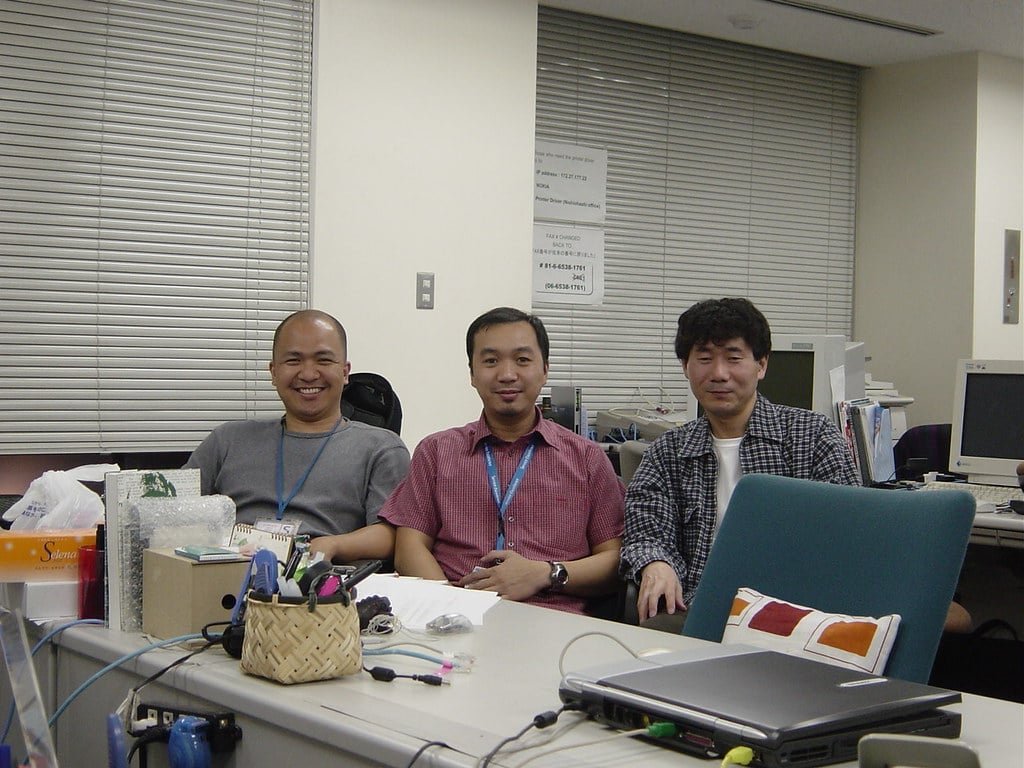
Overall, though there are certainly challenges to working for a Japanese company in Osaka, the vast majority of those I interviewed said that choosing to do so has been an overwhelmingly positive experience for them. They enjoy the sense of collaboration and team work they have with their colleagues. Many have come to view their workmates as an extended family. Some even formalized this by entering into relationships with people they met at the workplace.
It’s certainly not for everyone but working for a Japanese company is certainly something that will challenge you to think a little differently and hopefully give you greater understanding of just how the Japanese psyche works. If you decide to give it a try, then a tough, intense but ultimately rewarding experience awaits you.






